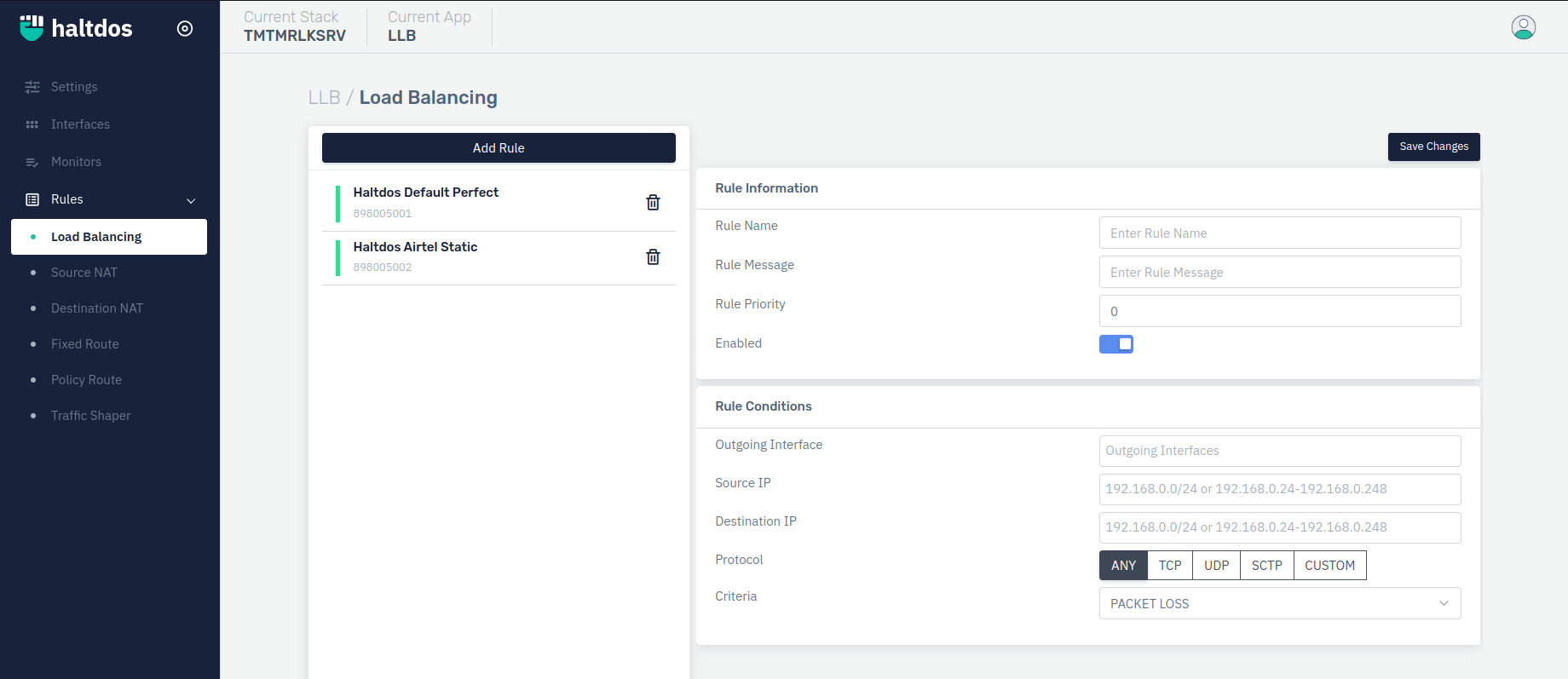Load Balancing
Load Balancing Rule & Settings
A load balancer rule is used to define how incoming traffic is distributed to all outgoing interfaces. These rules settings help you to enable/disable the load balancing rule by specifying the rule name, message, priority, Along with various rule conditions such as Outgoing Interface, Source IP, Destination IP, Protocol, and Criteria.

How to Use:
-
Go to Stack > LLB > Rules.
-
Select Load Balancing Rule.
-
Click Add Rule button.
-
Comfigure your settings.
-
Click Save.

Description:
Rule Name
This option allows the user to select desired rule name.
Accepted values: String
Default: Blank
Rule Message
This option allows users to use specifies the custom message for the rule.
Accepted values: String
Default: Blank
Rule Priority
This option allows the user to set rule priority. The rule with lower Priority Value will be prioritized.
Accepted values: Integer
Default: 0
Enable
It specifies rule is enabled or disabled the rule. By default, this option is enabled.
Accepted values: Enable / Disable
Default: Enable
Rule Condition
Outging Interface
This option allows the user to select the outgoing interfaces. If any data packet matches the policy mentioned in the rule, will be routed to the Outgoing Interfaces for load balancing.
Accepted values: Selct outgoing Interface
Default: Blank
Source IP
This option helps users to select the source IP or network for the IP packet on which they want to set the load balancing rule. This option will filter out all packets with mentioned IP range and take action. Source IP can be written as 192.168.1.1/24 or 192.168.1.5-192.168.1.25.
Accepted values: IP
Default: Blank
Destination IP
This option allows users to select the destination IP or network for the IP packet on which they want to set the load balancing rule. This option will filter out all packets with mentioned IP range and take action. Destination IP can be written as 192.168.1.1/24 or 192.168.1.5-192.168.1.25.
Accepted values: IP
Default: Blank
Protocol
This option allows users to set custom protocols for rules. The data packets are inspected and data packets that match with mentioned Protocol will be routed to an outgoing interface that is selected under Outgoing Interface. By default, ANY protocol is set i. e. all protocols are selected for the rule.
Accepted values: ANY / TCP / UDP / SCTP / CUSTOM
Default: ANY
Criteria
It specifies the other network-based conditions for load balancing. Users can select from many options to figure out any network fluctuation in connectivity. Users can set their packet drop, jitter, latency, etc.
Accepted values: PACKET LOSS /
Default: Blank